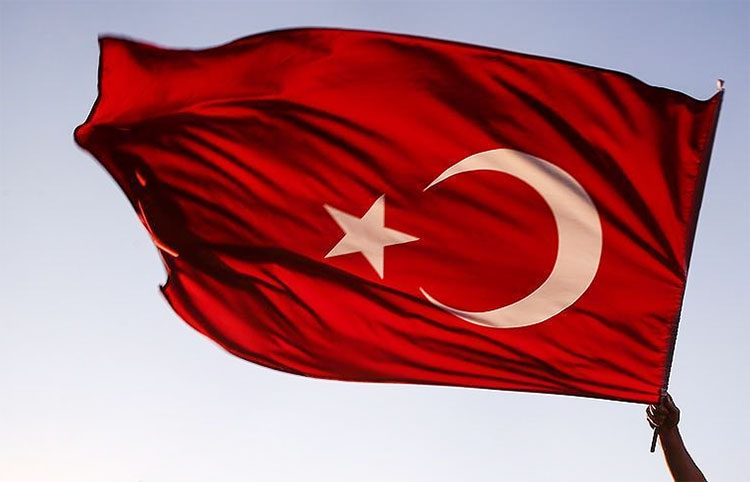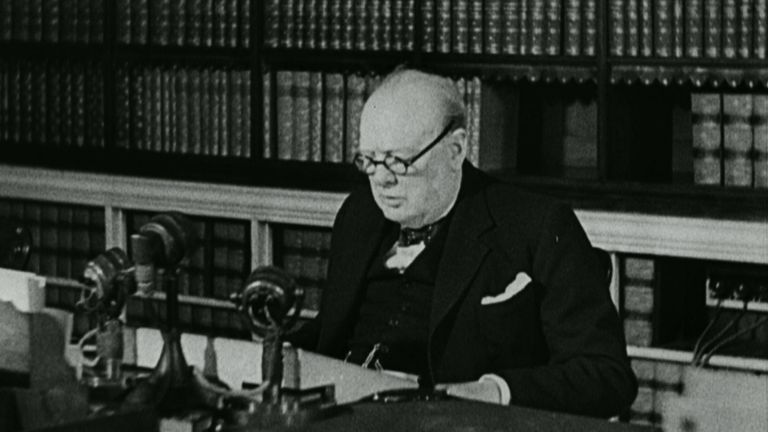Report: UK Plans To Restrict Visas From Pakistan, Nigeria, And Sri Lanka

Table of Contents
Reasons Behind the Proposed UK Visa Restrictions
The UK government's justification for the proposed stricter visa regulations centers on several key concerns. These include a perceived increase in irregular migration from these three nations, coupled with high visa refusal rates for applications originating from them.
- Increased Irregular Migration: The UK government cites concerns about an increase in individuals attempting to enter the UK illegally, potentially overwhelming existing resources and posing challenges to border security. This is often linked to perceived vulnerabilities in the current visa application process.
- High Visa Refusal Rates: Statistics may indicate a higher-than-average refusal rate for visa applications from Pakistan, Nigeria, and Sri Lanka. This could be attributed to various factors, including incomplete applications, discrepancies in documentation, or concerns about the applicant's intentions.
- National Security Concerns: The government may argue that tighter scrutiny of visa applications from these countries is necessary to safeguard national security and prevent potential threats. This involves rigorous vetting procedures to identify individuals who might pose a risk.
- Strain on Immigration Resources: The influx of visa applications, particularly those requiring extensive processing, can strain the resources of the UK's immigration system. The proposed restrictions aim to streamline the process and manage the workload more effectively.
The UK government has yet to release a comprehensive official statement directly linking all these factors to the proposed restrictions for these three specific countries. However, these concerns are frequently cited in discussions about UK immigration policy and are likely contributing factors. Further research into official government reports and parliamentary debates is necessary to fully understand the rationale.
Potential Impact on Individuals and Families
The stricter UK visa restrictions will likely have far-reaching consequences for individuals and families from Pakistan, Nigeria, and Sri Lanka.
- Increased Difficulty in Obtaining Visas: The application process is expected to become more rigorous, with increased scrutiny of applications and potentially higher thresholds for approval.
- Longer Processing Times: Applicants could face significantly longer waiting periods to receive a decision on their visa application, creating uncertainty and delaying their plans.
- Financial Burdens: The higher complexity of the application process might necessitate professional legal assistance, adding to the already substantial financial burden of visa applications and potentially making them inaccessible to many.
- Separation of Families: Families seeking reunification might face insurmountable hurdles, leading to prolonged separations and impacting family well-being.
These changes could have devastating effects on individuals' life plans, from career opportunities to educational pursuits, and importantly, maintaining family connections. Anecdotal evidence from immigration lawyers and advocacy groups suggests many cases of hardship and disruption caused by existing visa policies.
Reactions and Criticisms of the Proposed Restrictions
The proposed restrictions have sparked considerable backlash from various quarters.
- Governments of Pakistan, Nigeria, and Sri Lanka: These governments may express concerns about the potential discriminatory nature of the restrictions and their impact on bilateral relations. They might advocate for fairer and more transparent processes.
- Human Rights Organizations: Human rights groups are likely to raise concerns about potential discrimination and violations of human rights if the restrictions disproportionately affect vulnerable groups. They might challenge the restrictions on legal grounds.
- Immigration Lawyers and Advocacy Groups: Immigration lawyers and advocacy groups will play a critical role in providing legal support to applicants and challenging the restrictions in court if they are deemed unfair or discriminatory.
Criticisms frequently cite concerns about:
- Discrimination and Unfair Targeting: Critics argue that the restrictions might disproportionately affect specific nationalities without sufficient justification, potentially leading to allegations of discrimination.
- Negative Impact on Bilateral Relations: The restrictions could damage the diplomatic ties between the UK and the affected countries.
- Lack of Transparency and Due Process: Concerns about the lack of transparency in the decision-making process and the potential lack of due process for applicants are often raised.
Alternative Solutions and Future Outlook
Instead of imposing stringent restrictions, the UK government could explore alternative solutions to manage immigration effectively.
- Strengthening Border Security: Investing in advanced border security technology and infrastructure could help to deter irregular migration and enhance control over entry points.
- Improving Visa Application Processes: Streamlining the visa application process and improving its efficiency could help to reduce processing times and alleviate the burden on immigration resources.
- Increased Cooperation with Origin Countries: Strengthening collaboration with the governments of Pakistan, Nigeria, and Sri Lanka on matters of migration management could lead to more effective and humane solutions.
The long-term implications of these restrictions remain uncertain. They could potentially lead to a decrease in skilled migration to the UK, affecting economic growth and potentially straining bilateral relationships. Short-term effects will likely include increased processing times and financial burden on applicants.
Conclusion: Understanding the Implications of UK Visa Restrictions
The proposed UK visa restrictions represent a significant shift in immigration policy. This article has explored the government's stated reasons, the potential impact on individuals and families from Pakistan, Nigeria, and Sri Lanka, and the resulting criticisms. It is crucial to understand the potential implications of these changes for individuals facing hardship and the wider context of international relations. To stay informed about developments and their effects, continue to research "UK visa policy updates," "immigration news," or "impact of UK visa changes." The ongoing monitoring of the implementation and impact of these UK visa restrictions is crucial for a comprehensive understanding of their long-term consequences.

Featured Posts
-
 Revolutionizing Public Sector Ai The Palantir Nato Deal Explained
May 10, 2025
Revolutionizing Public Sector Ai The Palantir Nato Deal Explained
May 10, 2025 -
 Mark Zuckerbergs Facebook In The Age Of Trump
May 10, 2025
Mark Zuckerbergs Facebook In The Age Of Trump
May 10, 2025 -
 Taiwan Faces New Totalitarian Threat Lais Urgent Ve Day Message
May 10, 2025
Taiwan Faces New Totalitarian Threat Lais Urgent Ve Day Message
May 10, 2025 -
 Aoc Vs Pirro A Fact Check Showdown On Fox News
May 10, 2025
Aoc Vs Pirro A Fact Check Showdown On Fox News
May 10, 2025 -
 7 Year Reunion Two Abc Actors Reunite In High Potential Finale
May 10, 2025
7 Year Reunion Two Abc Actors Reunite In High Potential Finale
May 10, 2025
